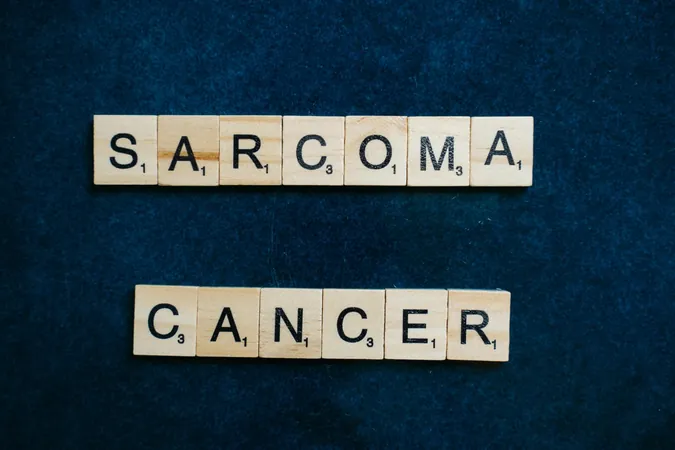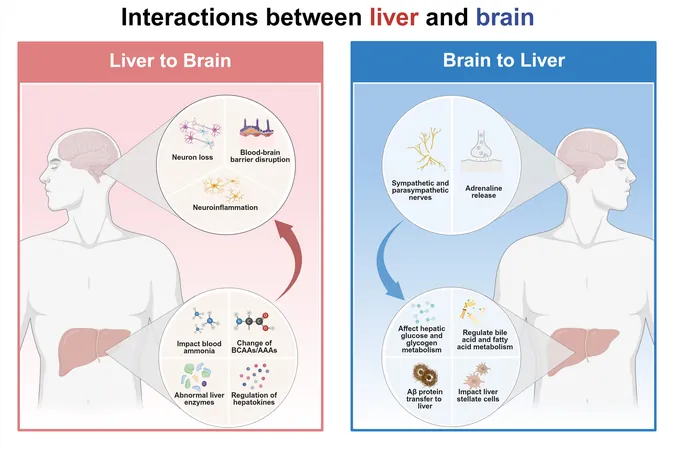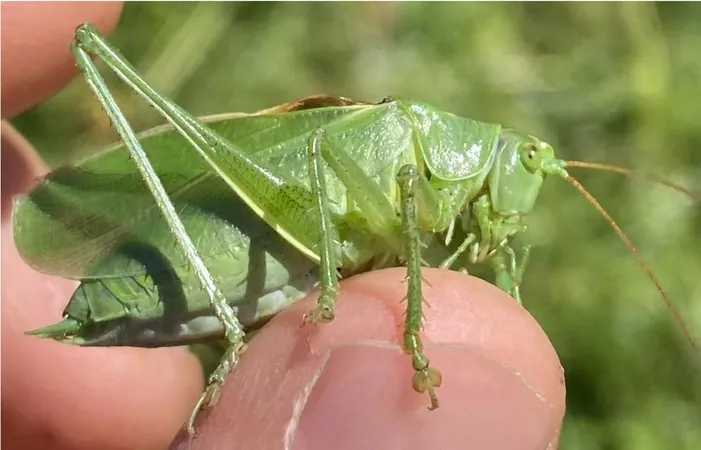
Revolutionizing Pediatric Sarcoma Diagnosis: How AI is Changing the Game
2025-04-29
Author: Sarah
AI Breakthrough in Pediatric Sarcomas
Imagine a world where artificial intelligence could swiftly and accurately diagnose pediatric cancers using just digital images. This is becoming a reality thanks to groundbreaking research presented at the recent American Association for Cancer Research (AACR) Annual Meeting. An innovative AI model has proven its capability to classify different subtypes of rare pediatric sarcomas, paving the way for improved treatments.
Understanding Pediatric Sarcomas
Pediatric sarcomas are infrequent yet diverse tumors that arise from various soft tissues in the body, like muscles and nerves. Unlike other cancers, these tumors require precise classification based on their specific characteristics and molecular make-up to tailor effective treatment plans. However, the diverse nature of sarcomas complicates their classification, often needing advanced genetic testing and expert reviews.
The Promise of AI in Precision Medicine
"Accurate classification is pivotal for optimizing treatment strategies," states Dr. Adam Thiesen, a leading researcher in this study. Traditionally, diagnosing sarcomas has been a daunting task, necessitating specialized knowledge and resources that aren't always available.
How the Study Worked
In a cutting-edge approach, Thiesen and his team utilized 691 digital pathology images from prominent institutions like Massachusetts General Hospital and St. Jude Children's Hospital. These images represented nine different sarcoma subtypes, which served as a training ground for their AI algorithms.
Much like how facial recognition technology works on smartphones, the AI models analyze tumor morphology patterns to categorize them into specific diagnostic groups. The researchers transformed visual data into numerical data, allowing computers to dissect the information with remarkable efficiency.
AI's Stellar Performance
The results were astonishing. The AI-driven models achieved impressive accuracy rates: 92.2% in identifying Ewing sarcoma, 93.8% for differentiating rhabdomyosarcoma types, and a whopping 95.1% accuracy in distinguishing between various subtypes of rhabdomyosarcoma.
A Glimpse into the Future of Healthcare
"This AI-driven model could revolutionize access to rapid, precise cancer diagnoses for pediatric patients, regardless of their healthcare context," Thiesen explains. Notably, these models can be run on standard laptops, making this technology accessible even in resource-limited settings.
Room for Growth
While the study marks a significant step, researchers aim to expand their dataset. Given that pediatric sarcomas are rare, this collection might be the largest of its kind, but adding more images would enhance the AI's accuracy and applicability.
As Dr. Thiesen remarked, "We are hopeful that collaborations will help enlarge this dataset in the future." With the potential to streamline diagnoses and influence cancer care profoundly, AI is definitively shaping the future of pediatric oncology.



 Brasil (PT)
Brasil (PT)
 Canada (EN)
Canada (EN)
 Chile (ES)
Chile (ES)
 Česko (CS)
Česko (CS)
 대한민국 (KO)
대한민국 (KO)
 España (ES)
España (ES)
 France (FR)
France (FR)
 Hong Kong (EN)
Hong Kong (EN)
 Italia (IT)
Italia (IT)
 日本 (JA)
日本 (JA)
 Magyarország (HU)
Magyarország (HU)
 Norge (NO)
Norge (NO)
 Polska (PL)
Polska (PL)
 Schweiz (DE)
Schweiz (DE)
 Singapore (EN)
Singapore (EN)
 Sverige (SV)
Sverige (SV)
 Suomi (FI)
Suomi (FI)
 Türkiye (TR)
Türkiye (TR)
 الإمارات العربية المتحدة (AR)
الإمارات العربية المتحدة (AR)